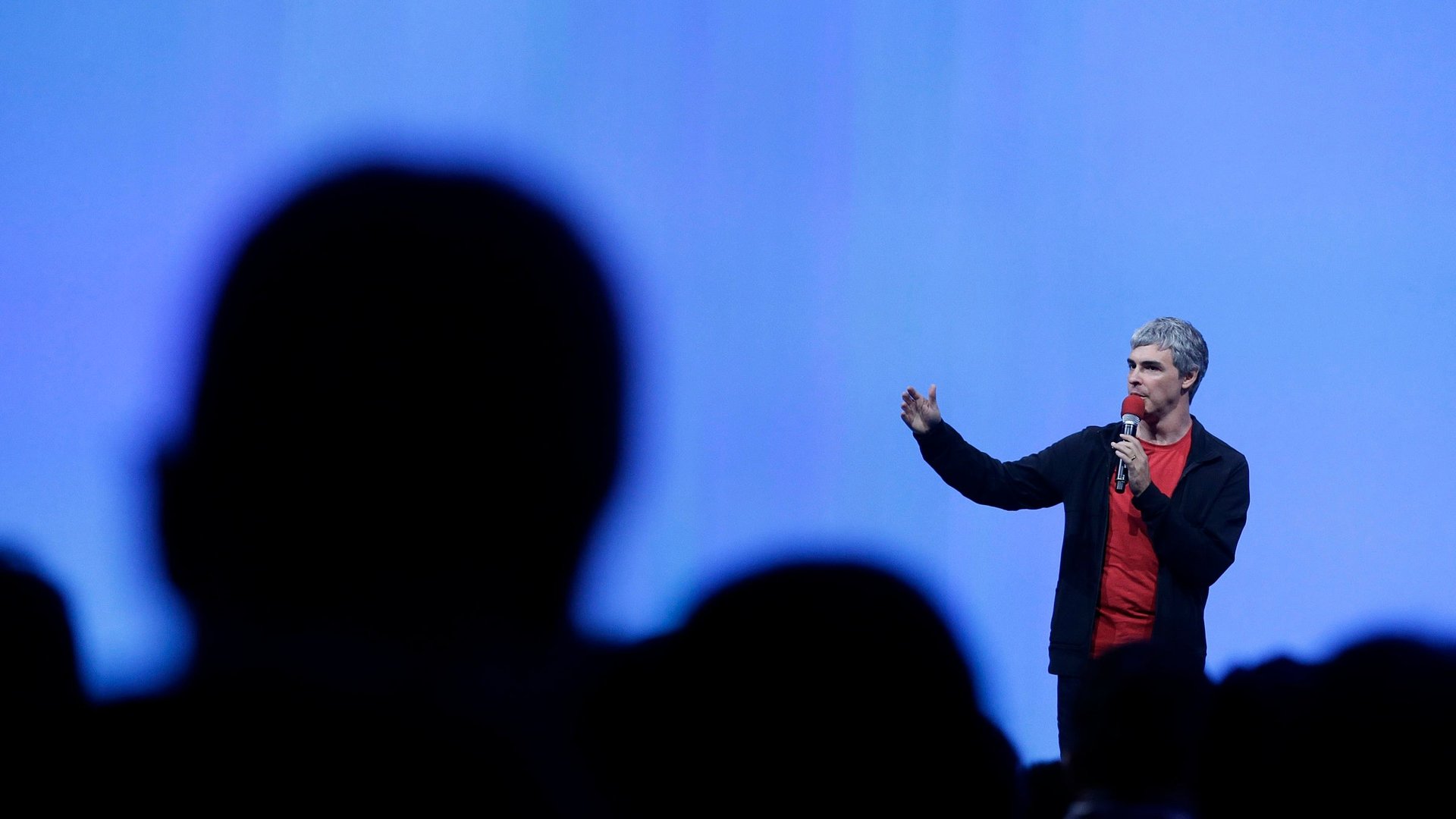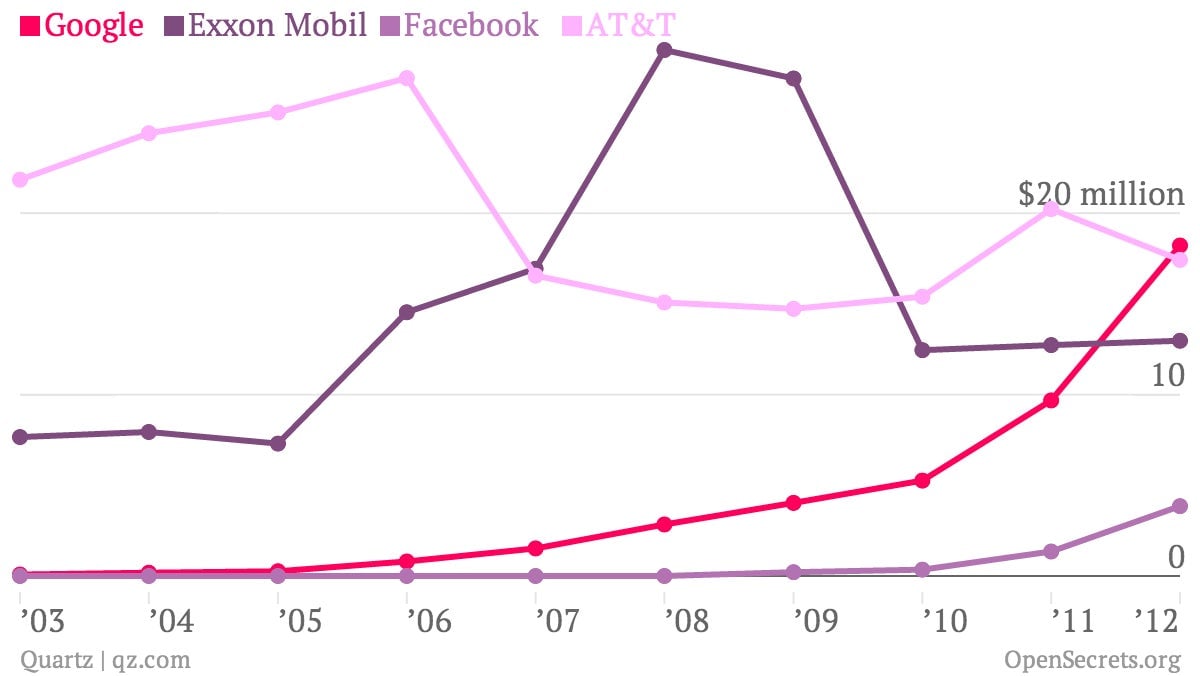The $18.2 million reason Larry Page would like a regulation-free playground in which to experiment
Yesterday Google CEO Larry Page said it would be nice if there were some part of the world that were free of regulation so that companies like Google could experiment without fetter. He cited Burning Man, the drug-fueled quasi-anarchist arts festival that Page has been known to attend, as an example of such a place, but in reality it might look more like special economic zones like the one in Honduras.


Yesterday Google CEO Larry Page said it would be nice if there were some part of the world that were free of regulation so that companies like Google could experiment without fetter. He cited Burning Man, the drug-fueled quasi-anarchist arts festival that Page has been known to attend, as an example of such a place, but in reality it might look more like special economic zones like the one in Honduras.
But why is Page saying this now? On the one hand, there’s the steady drum-beat of regulatory action against Google in Europe, from Germany’s 2009 declaration that Google Books violates copyright law to France’s recent proposal to tax Google in order to finance its own cultural projects.
More recently, and perhaps more ominously, US regulators have vowed to pounce on Google if it violates the terms of its settlement last January of an antitrust suit brought by the US Federal Trade Commission (FTC). That ended a 19-month investigation of the company, which means Google spent all of 2012 and much of 2011 worrying whether the FTC was going to fine it, or worse. And in 2012, Google spent a record $18.2 million lobbying Washington according to transparency website OpenSecrets, probably out of concern for the results of that lawsuit. [Update: Some have pointed out that it’s even more likely that Google’s 2012 lobbying binge was due to the company’s successful effort to kill the 2012 Stop Online Piracy Act.]

Let’s put that in perspective. In 2012, Google spent more money lobbying Washington directly than Exxon Mobil, a company with 10 times as much revenue. (Even after you add in the other ways Exxon Mobil dumps money into Washington, through individual contributions of its employees and its political action committee, Exxon’s total 2012 lobbying spend of $16.64 million is still below what Google spent on direct lobbying alone.)
Or compare Google’s 2012 lobbying efforts to those of other technology companies. In 2012, Google spent more than Apple, IBM, Cisco and Facebook combined—companies which collectively have more than six times as much revenue. Even Microsoft, which survived a bruising six-year assault by the FTC that at one point included a proposed breakup of the company, never sent more than $9.5 million to Washington.
Here’s one more comparison: AT&T, a highly regulated telecommunications company with two and a half times as much 2012 revenue as Google, spent $800,000 less than Google did on lobbying in 2012.
So far, it doesn’t look like Google is going to spend quite as much on political influence this year. In the first quarter of 2013, Google spent $3.35 million on direct lobbying. If it continues at the same rate, that will add up to $13.4 million this year, nearly $5 million less than in 2012.
But there’s a good reason for all this spending. As Google enters more and more industries that are highly regulated—from automobiles to payment systems—and as its email, search and social services rack up more and more users, with ever-growing privacy implications, its risk of falling foul of regulators is increasing fast. A few extra millions may not buy it a regulation-free paradise, but they’re well spent all the same.